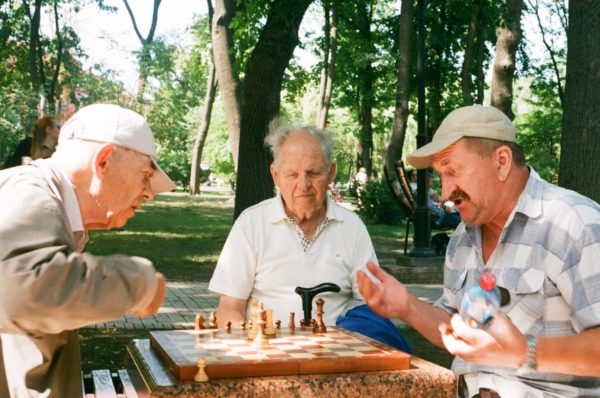The connections we have with others are incredibly important. As seniors get older, loneliness and isolation can threaten their health just as much as physical illnesses.
Socialization is a vital part of a vibrant, fulfilling life at any age. However, changes in health and mobility can impact seniors’ ability to make and keep plans. Here are some tips for helping older adults navigate these challenges to maintain their relationships and even form new ones. Sometimes reaching out to help others in need is the perfect motivator for seniors who would benefit from extending their social circles.
 1. Keep seniors’ favorite activities accessible.
1. Keep seniors’ favorite activities accessible.
The best social activities for seniors are often the ones they already enjoy. If your loved one regularly attends worship services, meets friends for breakfast, or has a standing poker night, look for ways to help them stay engaged.
Seniors who no longer feel comfortable leaving home unassisted will often quietly excuse themselves from the activities and people they love. Help them maintain these connections by arranging transportation or companionship so they can venture out with confidence.
2. Identify obstacles.
If you notice your loved one is avoiding social activities they once enjoyed, talk to them.
As seniors age, bodily changes can make them less comfortable in social settings. Declining hearing or vision can be a source of embarrassment. Older adults who don’t feel steady on their feet may fear that an outing will lead somewhere inaccessible or that they will slow down the group. Finally, concerns about incontinence can leave seniors feeling trapped at home.
There are lots of solutions to all of these potential problems – and many of them are extremely simple. A conversation can help you determine what is really keeping your senior from their favorite activities. Once you identify their concerns, you can work together to address them.
3. Make meals social events.
How we eat can be just as important as what we eat. Dining alone can feel very isolating for seniors, and the effects can be physical as well as emotional. Studies reveal that elderly people who eat alone tend to have a poorer quality diet and consume less food.
Encourage older adults to make social plans centered around meals. At times when they can’t be with friends and family, professional nutrition services can bring healthy food and mealtime companionship directly to seniors’ kitchens. In-home nutrition experts can offer a friendly face and good conversation while helping with grocery shopping, meal planning, cooking, and clean-up.
4. Look for symptoms of depression in older adults.
Around 6 million adults over the age of 65 suffer from depression. Unfortunately, the warning signs of depression in the elderly are often mistaken for normal signs of aging. Common symptoms in older people include:
- Changes in sleeping habits
- Dramatic weight gain or loss
- Unexplained aches and pains
- Irritability
- Lack of energy
- Feelings of hopelessness
Check in with your loved one regularly and be proactive if you notice that they seem disengaged from relationships and hobbies. Depression can significantly increase seniors’ risk of heart disease, so don’t hesitate to pursue proper treatment.
 5. Consider companion care for seniors.
5. Consider companion care for seniors.
When you can’t be with your loved one, professional companion services can help ensure that their social needs are being met.
Caregivers can offer a bright spot to seniors’ days.
Regular visits from friendly, qualified caregivers are a bright spot in seniors’ routines. They offer more than good conversations inside the home – companions can also support seniors’ relationships with others by facilitating the activities they enjoy. Older adults can get help running errands, hosting gatherings, and attending events with confidence.
Get creative in how you encourage seniors’ socialization, and you’ll support their mental and emotional health, as well as their quality of life.


 1. Keep seniors’ favorite activities accessible.
1. Keep seniors’ favorite activities accessible.
 5. Consider companion care for seniors.
5. Consider companion care for seniors.

